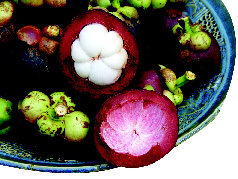
Cancer vies with cardiac disorders in being the No.1 killer disease in the world. In the next 20 years the global incidence is expected to nearly double, to cross 21 million new cases and 13 million Cancer deaths. If we are to succeed in corralling Cancer’s tentacles it is important to better understand the nature and genesis of this disease. It seems tumors are caused by exposure to tobacco, chemicals, radiation, environmental pollutants and infectious organisms. Lifestyle choices are key. Nutrition choices alone account for 20-30% of all Cancers. In some measure, Cancers can be triggered by internal mutations as well as hormone disruptions, which can in part be inherited. The tumours themselves, however, do not kill. Over 90% of the fatalities are caused by the subsequent uncontrolled growth of cells (‘metastasis’). To summarise, the onset of Cancer is indeed dependent on the environment we constantly co-create for the 70-100 trillion cells in our bodies. It is imperative that we take a holistic view of the problem and finding a well-coordinated solution. Even as each branch of science (Genetics, Epigenetics, Biology, Quantum Physics, Immunotherapy and Neuropsychology) is gaining from important developments of its own, inter-disciplinary teams are also being cobbled together to look for ‘out-of-the-box’ solutions to manage Cancer. Could cancerous cells simply be exhibiting a pre-coded genetic behaviour (to survive and reproduce)? Could this be attributed to an ancient gene we share with our single-celled prehistoric ancestors? If true, this insight may lead to simple interventions (e.g. enhanced oxygen therapy), to alter the environment of the cells, which would make it difficult for them to frenetically reproduce. Another option would be to selectively introduce specific poisons into the eco-system to target and kill cancerous cells. Cancer is a multi-dimensional disease and needs to be treated accordingly. In North America, between 65-90% of Breast Cancer patients receive integrated treatment and support procedures. Most major Oncology centres have a unit specifically focused on bringing in the best of alternative practices. Some examples are: Naturopathy, Herbology, Meditation, Diet-planning, Acupuncture, Oxygen therapy and Immunotherapy (infecting the body with viral or bacterial agents that would attack cancerous cells). Chemoprevention, with phyto-chemicals derived from plants, is an important field of study. It refers to the use of herbal agents to inhibit, reverse or retard the growth of tumours. Thousands of herbal and traditional compounds are being screened to validate their use as anti-Cancer drugs. As early as the 7th century BC, the early practitioners of Ayurveda (Atreya and Dhanwantari) used herbal medicines for treating the early stages of ‘Cancer’. Of the 3,200 herbs and 300 mineral and animal extracts in Traditional Chinese Medicine (TCM), several are under study for Cancer prevention and management. Herbs can indeed contribute to longer survival rates, reduction of side effects, and lower risk of recurrence for certain types of Cancer - especially when combined with conventional treatment. More rigorous work is yet to be undertaken to help formulate a new standard of care. According to a 2004 research paper in ‘Pharmacological Research’ (P. Balachandran and R. Govindarajan), over 15 Ayurvedic herbs are under the radar for anti-Cancer properties. Some of the more common ones are: Curcuma (Turmeric), Moringa, Ficus bengalensis (Indian banyan), Grapes, Black Pepper and Onions. Several studies in the recent decade have shown that Triphala is useful in the prevention of Cancer and that it possesses anti-neoplastic, radio-protective and chemo-protective properties. Triphala is a mixture of Amla (Indian Gooseberry), Haritaki (Terminalia chebula) and Vibhitaka (Terminalia belerica).
‘Cancer Research UK’ makes a mention of several Ayurvedic herbs: Sanjeevani, Mangosteen, Pomegranate, Indian Frankincense (Salai Guggul or Boswellia), Withaferin A (from Winter Cherry) and MAK-4 & 5 – multi-herb combinations rich in antioxidants, which induce the human body to produce more Super Oxide Dismutase (SOD), a natural enzyme that scavenges Free Radicals.
Tip of the Week
When considering alternative therapies or following specific diets, it is always recommended to check with your doctor. Some herbal medicines may interact with conventional treatments, and some others may contain harmful heavy metals such as lead or zinc or other pollutants. Yoga, relaxation techniques and massage are generally fairly safe. Various forms of meditation can also be considered – including the moving forms like tai chi, qigong and the Japanese martial art aikido. Montreal’s Dr. Christian Boukaram has written an interesting book on this - ‘The Power of the Mind’.
Natureís Wonder Food(s) of the Week: Mangosteen ñ Cambogia Mangostana
Mangosteen fruit has a long history of medicinal use in Chinese and Ayurvedic medicine. Unique for its appearance and flavour, Mangosteen is often revered as the queen of tropical fruits. This purple coloured fruit is quite popular all over Asia for its snow-white, juicy and delicious arils. It is very low in calories (63 calories per 100 gm) and contains no saturated fats or cholesterol, yet it is rich in dietary fibre (13% of RDA per 100 gm). Rich in Vitamin C, the fruit is also a moderate source of B-complex vitamins such as thiamin, niacin and folates. Additionally, it is a very good source of minerals like copper, manganese and magnesium.
Clinical studies have shown that Xanthones (e.g. ‘Alpha Mangostin’), extracted from various parts of the Mangosteen fruit, possess a wide range of pharmacologic properties, including antioxidant, anti-tumour, anti-allergic, anti-inflammatory, anti-bacterial, anti-fungal and anti-viral activities. Potential chemo-preventive and chemo-therapeutic activities - impacting the growth of cancerous cells - of xanthones have been demonstrated in recent studies.
For Education purposes only; always consult a Healthcare Practitioner for medical conditions
Read More...